Ariel Sellers kept breaking bones — first one finger on each hand, then her clavicle and finally her leg.
Doctors and other experts were concerned. What could be causing the young girl’s spate of injuries in just four months? One doctor suggested that maybe Ariel was impervious to pain, and missed the neurological signals telling her that her bones were breaking.
The condition is extremely rare, affecting an estimated 1 in 25,000 people. But perhaps Ariel was that one.
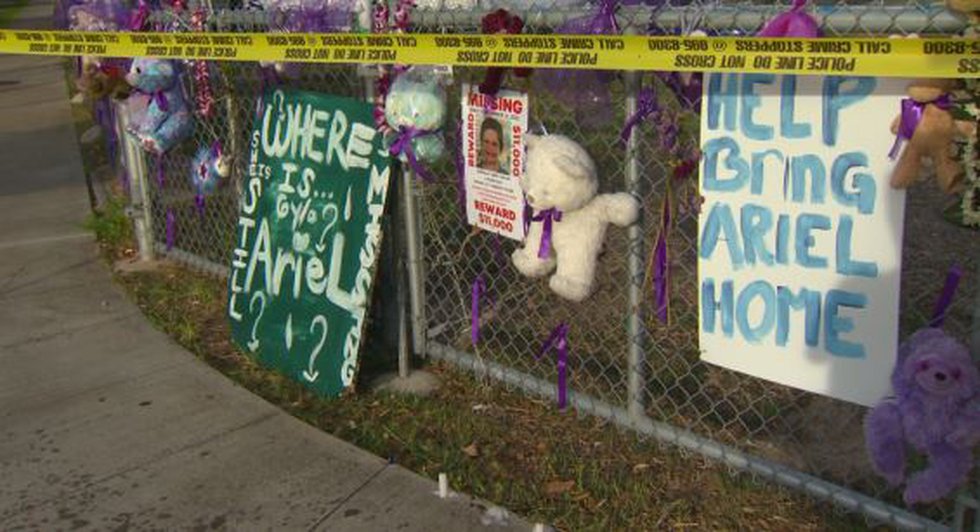 Ariel Sellers’ adoptive parents reported her missing in September 2021, setting off a community search. (Hawaii News Now/2021)
Ariel Sellers’ adoptive parents reported her missing in September 2021, setting off a community search. (Hawaii News Now/2021)
Other experts opined that Ariel might suffer from a disease that made her bones brittle and susceptible to breaking. State officials and others involved with the girl’s case kept repeating these possible causes.
But could there be another explanation? Could Ariel’s foster parents, Isaac and Lehua Kalua, be abusing her?
Not likely, the experts said.
“All fractures have a plausible explanation and are not consistent with child maltreatment,” a panel of experts known as a multi-disciplinary team wrote in February 2020, “… however, further evaluation may be needed to rule out a medical cause such as bone disease.”
The team recommended that her biological parents’ rights be terminated, opening the way for her adoption by the Kaluas.
In January 2021, a Family Court judge approved the Kaluas’ adoption of Ariel and her siblings. Nine months after that, 6-year-old Ariel was reported missing, and was later declared by a court to be dead.
Now the Kaluas are facing second-degree murder charges for allegedly starving and abusing the girl they renamed Isabella, confining her to a dog cage and covering her mouth with duct tape in one of the state’s most notorious child abuse cases.
Some aspects of the state’s handling of Ariel’s case have become public in the years since her death.
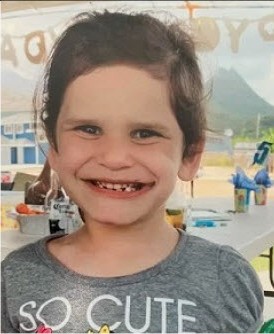 The body of Ariel Sellers, renamed Isabella Kalua after her adoption, has never been found. (Honolulu Police Department/2021)
The body of Ariel Sellers, renamed Isabella Kalua after her adoption, has never been found. (Honolulu Police Department/2021)
But now, in response to a Hawaiʻi Supreme Court order, hundreds of pages of her foster care and adoption case history have been unsealed. Despite extensive redactions, they reveal a wealth of new information about how the state, in its drive to permanently remove Ariel from her biological parents, overlooked or discounted warning signs that her foster parents could have posed the graver danger.
First and foremost were the injuries. The Kaluas reported that they noticed her swollen fingers on Oct. 14, 2019, and immediately took her to the doctor, where an X-ray showed she had a fractured finger on each hand. The fractures appeared to be older.
On a followup visit, a doctor noticed a bump on her right clavicle which turned out to be another fracture. Ariel said she fell off the monkey bars during a visit with her biological mother.
“Due to the history of multiple unwitnessed injuries without complaints of pain, there was concern for a diagnosis of possible congenital insensitivity to pain,” the doctor wrote in December 2019. “Foster mother says that she rarely cries, even after hard falls or injuries. She will also have bumps and bruises from falls.”
Lehua Kalua said Ariel fell all the time, sometimes when she was just walking.
The two doctors who saw her said they were concerned about Ariel’s safety, not because of suspicions about Lehua Kalua but because of Ariel’s biological mother, Melanie Joseph. The doctors advised that visits with Joseph should be fully supervised. The copious child welfare records contain no allegations that Joseph ever physically abused Ariel.
Then in January 2020, Ariel was taken to the emergency room with breaks to the tibia and fibula of her right leg. She said she fell off a trampoline and, despite the possible diagnosis of insensitivity to pain, was crying.
Fractures were not the only warning sign contained in the newly unsealed records.
A Witness Reports Seeing Abuse
One of the first to raise the prospect of abuse was Ariel’s biological mother, Joseph.
In early 2019, during a visit with Ariel at the Kalua home, she told her daughter that she should let her know if anyone was hurting her.
Lehua Kalua replied to her: “Why are you saying those things and no one’s hurting no one here,” according to a summary of Joseph’s visits that Kalua sent to the Department of Human Services.
Kalua also described to DHS what she said she believed was evidence of Joseph’s drug use, such as dilated pupils and rambling speech. Kalua said she recognized the behavior “because I was once an addict and I know what an addict looks like.”
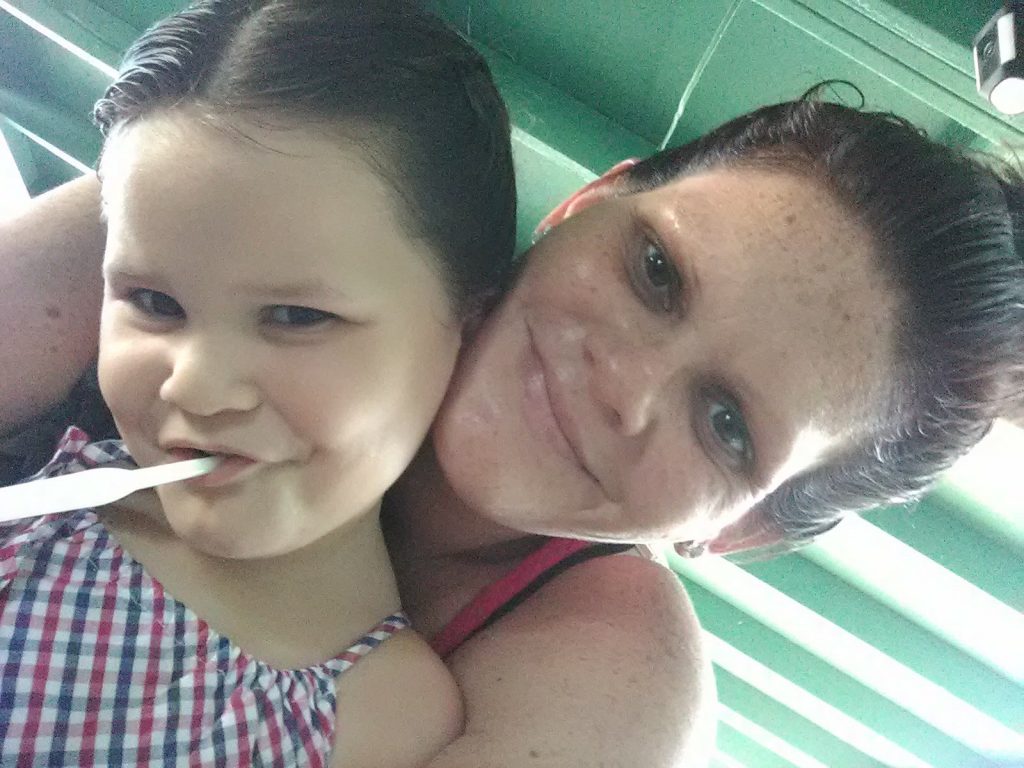 Ariel’s biological mother Melanie Joseph asked her daughter to tell her if anyone was abusing her. (Courtesy: Melanie Joseph)
Ariel’s biological mother Melanie Joseph asked her daughter to tell her if anyone was abusing her. (Courtesy: Melanie Joseph)
The DHS social worker assigned to Ariel’s case, Maili Taele, responded to Kalua, “Thanks for being so cooperative and working with DHS.”
In July 2019, the Department of Human Services received a report that Lehua Kalua had been seen punching and slapping Ariel, leaving the girl with a reddened face and bruises around the eyes.
A Child Welfare Services worker said she had no concerns about Kalua, who explained that she had to hold Ariel down when she had tantrums. The CWS worker told her that she was not allowed to do that and should merely keep the girl away from objects that could hurt her when she was acting out.
A month later, the case was closed as “not confirmed.”
The anonymous person who contacted CWS and several people who interacted with the family noticed that Ariel was losing weight. She had been overweight when she left her biological mother and was now within the normal range for her age and height.
The Kaluas attributed it to a healthier diet of fruits and vegetables. But the multi-disciplinary team noted that she had lost eight pounds in her first months in foster care. Such an abrupt change, they wrote, was “not a recommended way” to get to the right body mass index.
The Kaluas reported that she was prone to colds and the flu, but her school was concerned about her frequent absences due to illness and the injuries to which she also seemed unusually susceptible.
‘Ms. Kalua Reported That She Loves Children’
The newly released files indicate the foster parents were not always open with state social workers.
A court-appointed special advocate for Ariel reported in October 2019 that social worker Taele had informed her of several incidents in which the Kaluas failed to keep DHS updated. The foster parents had responded that they were “overwhelmed,” and “either deliberately or accidentally” miscommunicated with DHS and service providers.
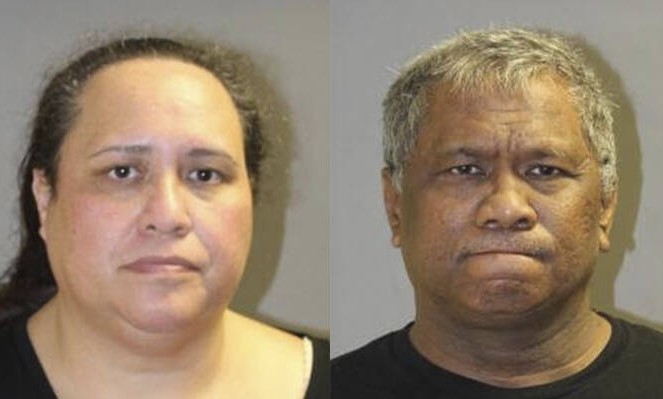 Isaac and Lehua Kalua are charged with second-degree murder in connection with the death of their adoptive daughter, who they renamed Isabella. (Honolulu Police Department/2021)
Isaac and Lehua Kalua are charged with second-degree murder in connection with the death of their adoptive daughter, who they renamed Isabella. (Honolulu Police Department/2021)
None of this got in the way of DHS recommending to a Family Court judge that the adoption go through.
A doctor examined the girl in November 2020 and declared her physically and mentally suitable for adoption.
A couple of weeks later, DHS weighed in.
“Ms. Kalua reported that she loves children and enjoys being a stay at home mother,” according to the report it filed with the court. “She reports that her Hawaiian culture and living in a small community helps her stay grounded.
“There are no problems with alcohol, use of illegal drugs or abuse of prescription drugs for Ms. Kalua within the past 10 years.”
What DHS failed to mention was that Lehua Kalua in 2000 had been arrested on a felony drug charge. A judge in 2001 said that a statement she submitted to the court amounted to a confession. She graduated from drug court in 2002 and her case was dismissed.
DHS did mention that Isaac Kalua pleaded guilty to felony charges of terroristic threatening and assault in 2000, and spent two weeks in jail. It offered up his explanation:
“Mr. Kalua reported that this was an unfortunate experience he encountered with his ex-wife. He has had no contact with her or her family since 2012. He was remorseful and reported that he was going through a rough divorce.”
DHS also listed a number of traffic citations for both Kaluas: “Mr. Kalua and Ms. Kalua have worked hard to resolve their traffic issues and past infractions so that they are able to provide a stable home environment for their family of six.”
In sum, the department reported, it had “no concerns at this time for Mr. Kalua and Mrs. Kalua.”
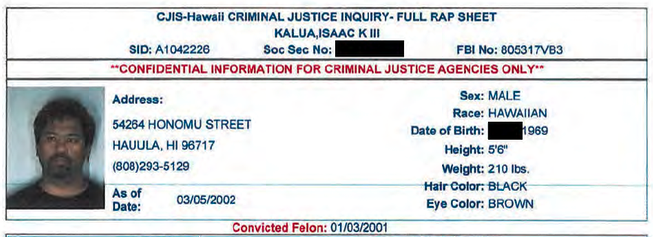 The state disclosed to Family Court that Isaac Kalua, who it recommended adopt Ariel Sellers, was a convicted felon. (Ariel Seller case file)
The state disclosed to Family Court that Isaac Kalua, who it recommended adopt Ariel Sellers, was a convicted felon. (Ariel Seller case file)
Ariel’s files were unsealed in response to a lawsuit by Public First Law Center, which advocates for open records. Public First said it was motivated by Civil Beat’s reporting on the state’s failure to disclose information, as required under federal law, when a child dies or nearly dies from abuse or neglect.
Public First, in publishing the files on its website Tuesday, wrote that, in Ariel’s case, “the court held that disclosure with redactions was required, in part, because access to the records ‘would contribute to public understanding and awareness of the response of agencies and the family court to problems of child abuse and neglect’.”
The murder trial of the Kaluas, postponed numerous times, is currently scheduled for Feb. 2.

Sign up for our FREE morning newsletter and face each day more informed.
Sign Up
Sorry. That’s an invalid e-mail.
Thanks! We’ll send you a confirmation e-mail shortly.
